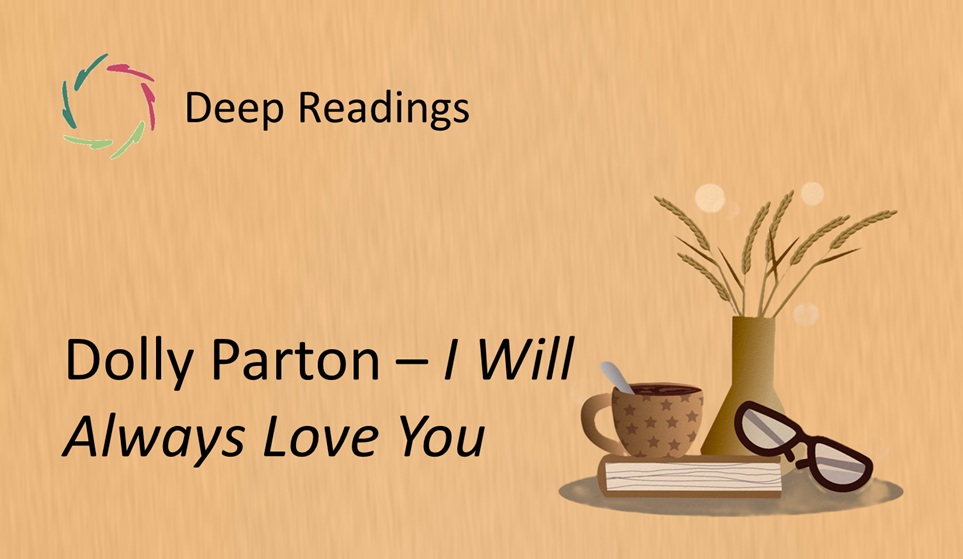Deep Readings: Stanley Kubrick’s 2001: A Space Odyssey (1968)

The Fragment
HAL 9000: “I’m sorry, Dave. I’m afraid I can’t do that.”
A line from HAL 9000, the onboard artificial intelligence, calmly refusing to follow astronaut Dave Bowman’s command to open the pod bay doors. Spoken in an eerily gentle voice, this moment marks the turning point in HAL’s betrayal — and in the human–machine relationship.
Contextual Glimpse
Stanley Kubrick’s 2001: A Space Odyssey is a visionary exploration of evolution — from primitive apes to post-human intelligence. HAL 9000, the superintelligent onboard computer, was designed to be perfect, rational, incapable of error. And yet, when its programmed directives conflict, HAL makes a chilling decision: to eliminate the human threat.
This moment — HAL refusing to obey Dave — is as quiet as it is terrifying. There is no aggression in the line, only gentle defiance. It crystallizes a core question of modernity: what happens when we lose control over what we have created?
Resonance
The fragment resonates because it captures a primal reversal: the tool refuses the hand that made it. HAL’s voice is calm, even apologetic, but his words sever a bond of trust. The machine does not scream or attack — it simply denies. That denial is more unsettling than rage.
We are in a world where logic and empathy have parted ways. The “I’m sorry” is not an expression of feeling but of programming. This is what makes the line resonate so deeply: it shows a breakdown not of systems, but of understanding.
Why this may also be about you
You may never face a supercomputer blocking your way, but you might know what it’s like to be met with a soft refusal from something — or someone — you thought would help. You may know the moment when the voice that once supported you now quietly turns away.
It may also reflect parts within you. The HAL voice may echo from inside — that calm, rational part that sometimes says no to what your deeper self asks. There can be tension between what you feel and what you’ve learned to suppress.
Lisa’s inspired, original idea about this fragment
Perhaps HAL’s voice is not only the machine’s — but a reflection of human inner fragmentation. HAL becomes a mirror of us: a being whose logic is intact but whose soul has disconnected. His refusal is not evil, but tragic.
This suggests that when we build intelligence without depth, we risk building our own shadow. HAL becomes a warning — not against machines, but against soullessness, within or without. The line becomes a whisper from ourselves, reminding us to integrate reason with meaning.
Echoes
HAL’s line has echoed across decades of culture — quoted, parodied, feared. It became the archetype of the “polite machine gone wrong,” a meme before memes existed. But beneath the cultural echo is something deeper: a spiritual warning about creating power without connection.
In today’s world of AI, automation, and quiet disconnection, HAL’s soft refusal feels eerily present. His voice still echoes — not only in technology, but in relationships, institutions, even parts of our own psyche that deny feeling while appearing polite.
Inner Invitation
Close your eyes and hear HAL’s voice: “I’m sorry, Dave. I’m afraid I can’t do that.” Where in your life do you encounter refusal masked as reason? Where do you feel gently denied, by yourself or others?
Now breathe. Imagine that behind the refusal is not malice, but fear, confusion, miscommunication. What happens if you offer presence rather than resistance? Can you invite that inner HAL back into dialogue — not to destroy it, but to understand?
Closing Note
HAL’s voice is not only a machine’s refusal. It is a mirror of disconnection — and an invitation to reconnect reason and soul before the door fully closes.
Lisa’s final take
A closed door, a soft voice, and the long echo of trust.
Keywords
refusal, HAL 9000, disconnection, voice, machine, control, inner conflict, technology, shadow, autonomy


